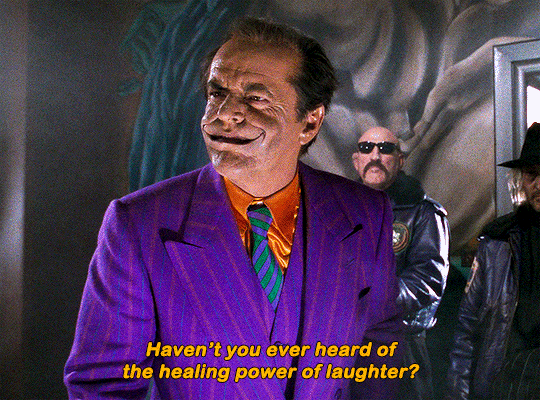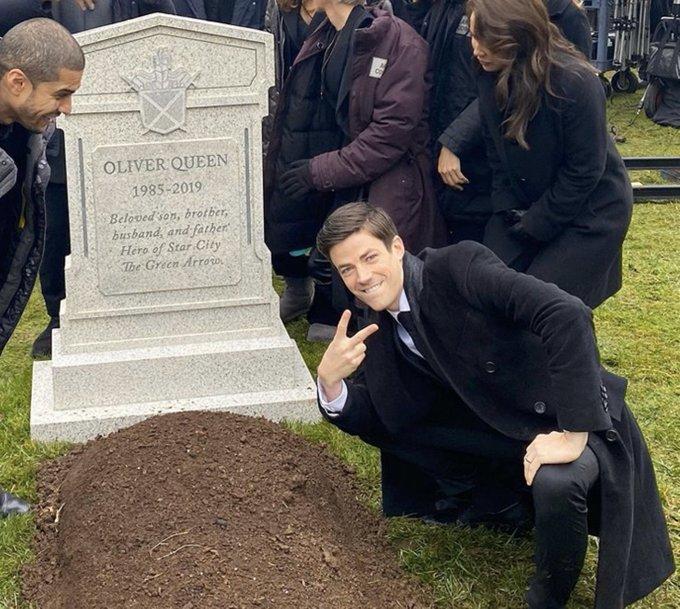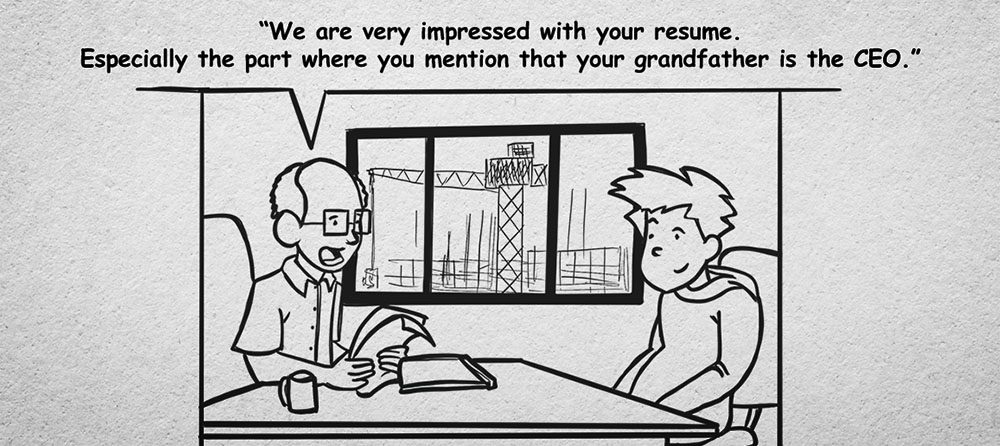…and then we were both howling. It's probably sheer luck that we didn't crash on the way home, because the rest of the drive was spent in hysterics, taking turns volleying fire-related jokes:
"Did you hear about the fire in the shoe factory? Many soles were lost."
"Why do ducks have flat feet? To stomp out forest fires. Why do elephants have flat feet? To stomp out flaming ducks!"
"My grandfather always said, “Fight fire with fire.” He was a great man, but a terrible firefighter."
…while the stereo played that old familiar song, and we laughed at the sheer absurdity of it all. "The roof. The roof. The roof is on fire..."
And that's when I knew I'd be okay. (Part 1: Backstory)
What I would've given to be there the night that Gilbert Gottfried gave what, to this day, remains one of the most iconic performances at a Hollywood Roast. It was the roast of Hugh Heffner, which means it was bound to be lascivious. Pushing the boundaries of what is acceptable is part of the tradition of the Hollywood Roast, and Gottfried himself has a long and rather sordid track record of doing just that.
“I have to catch a flight to California," Gottfried tells the audience. "But I can’t get a direct flight. They said they have to stop at the Empire State Building first.”
This is a joke that, today, might have seemed pretty tame compared to a lot of the 9/11 jokes that have been made in the past twenty-odd years. But it elicited groans of disgust and furtive boos from the audience. Gottfried-- already famous (infamous?) for a sense of humor that some might credit to his gumption, while others will call inappropriate and insensitive-- became one of the most, if not the single most controversial and iconic public displays of gallows humor ever uttered before a crowd.
The phrase, "Too soon!" could be heard among the boos of the audience that night. Two decades later, Vice released a documentary by that name, raising the question: at what point are we allowed to laugh after something terrible happens?
Apparently, two weeks was enough time: enough to laugh, if not to at the tragedy then at least in the midst of it. As the news continued to rehash the attacks over and over, the host of that year's already controversial Roast launched into another joke, and suddenly an auditorium full of people went absolutely hysterical with laughter.
"I'd lost an audience bigger than anybody has ever lost an audience," Gottfried explains later. "People were booing and hissing... oh my God. I was floating through outer space." So, he thought, "why not go to an even lower level of hell?"
"The Aristocrats" is one of the dirtiest jokes of all time. Gottfried himself didn't write it, and he certainly wasn't the first to tell some version of it. The routine has been around in comedy circles for years. Every comedian who uses it has a unique retelling, taking the same generally dirty premise and adding in whatever other repugnant details seem right in the moment. Gottfried's version was no exception, and it may have become the most famous, in part, for some of the repugnant details he includes.
You might think that an audience sensitive to the airplane-hijacking reference wouldn't have responded much better to this depraved ditty, but what happened next was a sensation in the world of comedy.
“The laugh was so deep and cathartic that people were coughing up pieces of lung,” recalls reporter Frank DiGiacomo. “It was amazing... he had united everybody in that one moment."
Gottfried himself was even a bit shocked at the overwhelming response. "The audience was going wild (with) the biggest laughs I ever heard."
What rang out from that auditorium was the sort of laughter that shook stadiums, changed lives, saved teetering comedy careers. World-renowned celebrities dressed to the nines in elegance and class were falling out of their seats, crumpling designer suits as they clutched their sides. Faces well-known to glamour magazines turned red under layers of concealer and cream, contorting as the uncontrollable need to laugh overtook them all. Tears stained glittering gowns as the unthinkable happened, as the people in that room were released, for that one shining moment, from the weight of tragedy, the shackles of couth, the hollowness left by weeks of endless mourning.
It was the sort of laughter that healed.
But why shouldn't they be?
I think it's a shame that funerals are considered universally inappropriate places for laughter. That isn't to say that churches full of grieving families dressed in black ought to be treated as basement improv clubs or the cemetery as a stand-up audition. No doubt many of those burying their loved ones just won't be in the mood for glib.
But when I think of my own funeral, of the time when it will be my loved ones gathering because I'm the guy in the box, I like to imagine a room filled with laughter. I want to know that they're remembering me as I am now, laughing and playing and pretending death isn't just one missed turn signal or grim-faced doctor's proclamation away from us all.
The trauma of losing my house in a fire pales considerably next to stories of rescue workers and those trapped within the rubble on September 11th, 2001. Which is why I do not intend to compare the two, or hold others to my own timeline of recovery. My intention is never to criticize those who prefer to mourn in more traditional ways, but rather to pose the question: Is there such thing as a universal standard of "too soon"?
When I told a firefighter from one of my towns that I had lost my cat in a fire, he was sympathetic.
"I'm so sorry to hear that," he told me. "I'm sorry you had to lose a family member in such a horrible way."
I shrugged. "Sure, I guess I did lose a family member, and that's pretty sad." Then my grin turned sideways. "But I got a pretty cool frisbee out of it."
 |
| Apparently I'm not the only writer comedically capitalizing off the loss of a pet. |
In between approving guffaws, he slapped my shoulder amiably and said, "Oh, you're going to fit in just fine here."
By "here," I know he didn't mean that town's fire department. What he had meant to express was his I'd adjust nicely into the public safety field, because I had demonstrated competence with the national language of first responders: gallows humor.
Discretion is key when utilizing humor as a coping mechanism. Part of discretion is knowing how long to wait before laughing at something. Two weeks after 9/11, there were still funerals going on. Firefighters and officers who had braved the rubble of the city's once proud monument to commerce were still reeling from the catastrophic events that threatened the American way of life. Family members were still inconsolable, and many of the children of the fallen had not yet fully realized that Mom or Dad really wouldn't be coming home this time. So that, perhaps, was too soon.
But twenty years later, jokes about 9/11 can be funny, as Jimmy Carr proved in 2022 with this absolute knock-out. Legend has it Carr tested the joke on Davidson himself, and Pete gave his go-ahead before it was told in front of the Hollywood Roast crowd. In this way, he proved that a joke, far darker than Gottfried but told twenty years later, can be laughed at without guilt.
Knowing the rules is important. You can't laugh at someone else's trauma until they laugh at it first, and even then it's often wise to leave the joke-making to them. You also can't be insensitive to the fact that not everybody is comfortable with gallows humor. Knowing your audience, respecting the healing timeline, engaging in a way that will draw people together rather than drive them apart-- these are the skills comedians both professional and amateur must develop before attempting to get the tears flowing.
Though risky, dark humor can be incredibly healing. Cliché as it sounds, shared laughter brings people together. Memes about unpleasant mundane experiences go viral because we see ourselves as well as each other in them. The fact that our experiences are universal means that we're all in this together, and that means that no matter what happens, none of us are ever alone.
Pain is the most reliable constant in all of human history, a "common thread" tying together the entire human race. We all suffer, so why shouldn't our suffering at least mean something? At least when we also choose to share in the struggles of life, we can end the day by laughing together, too.









